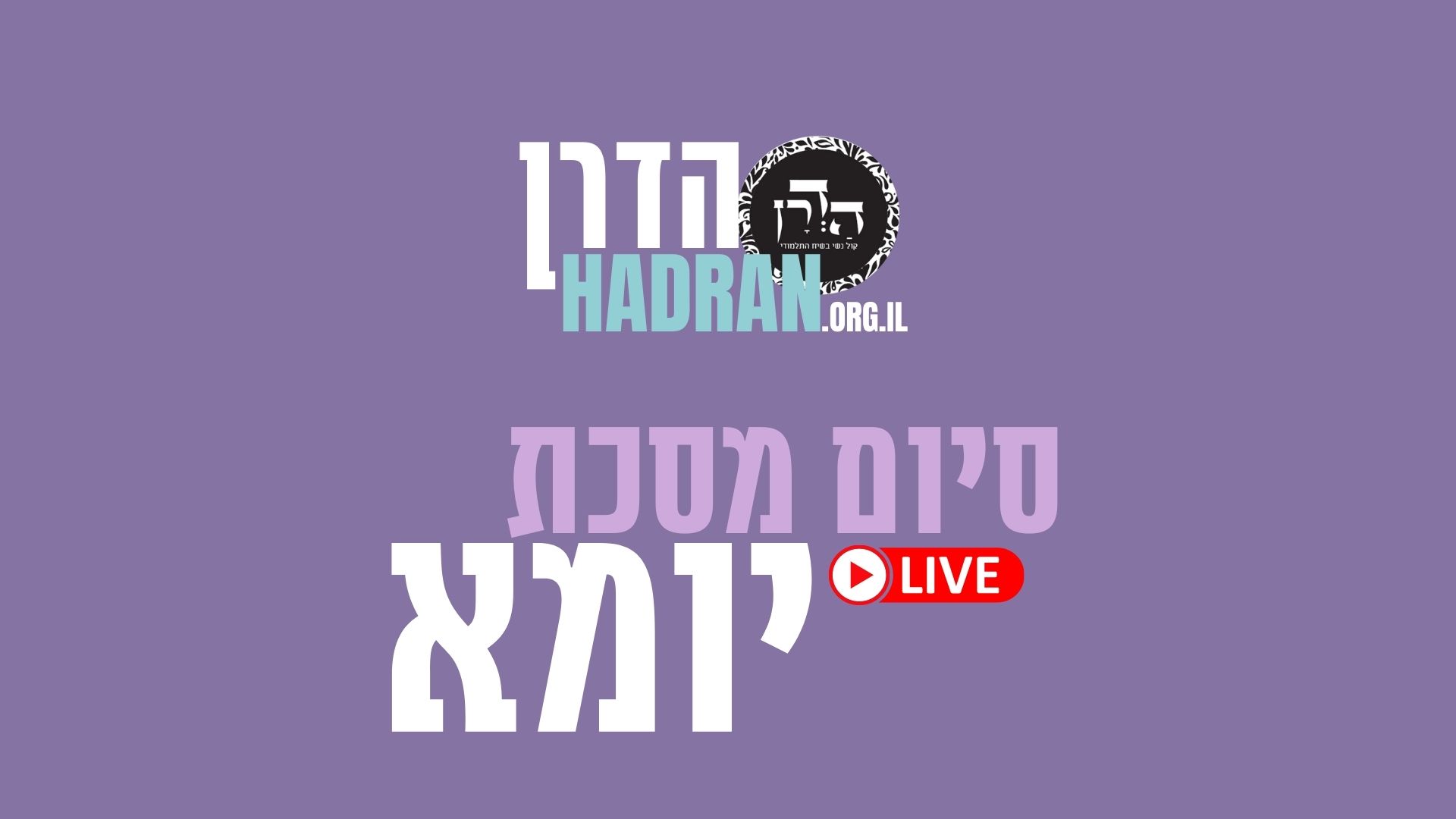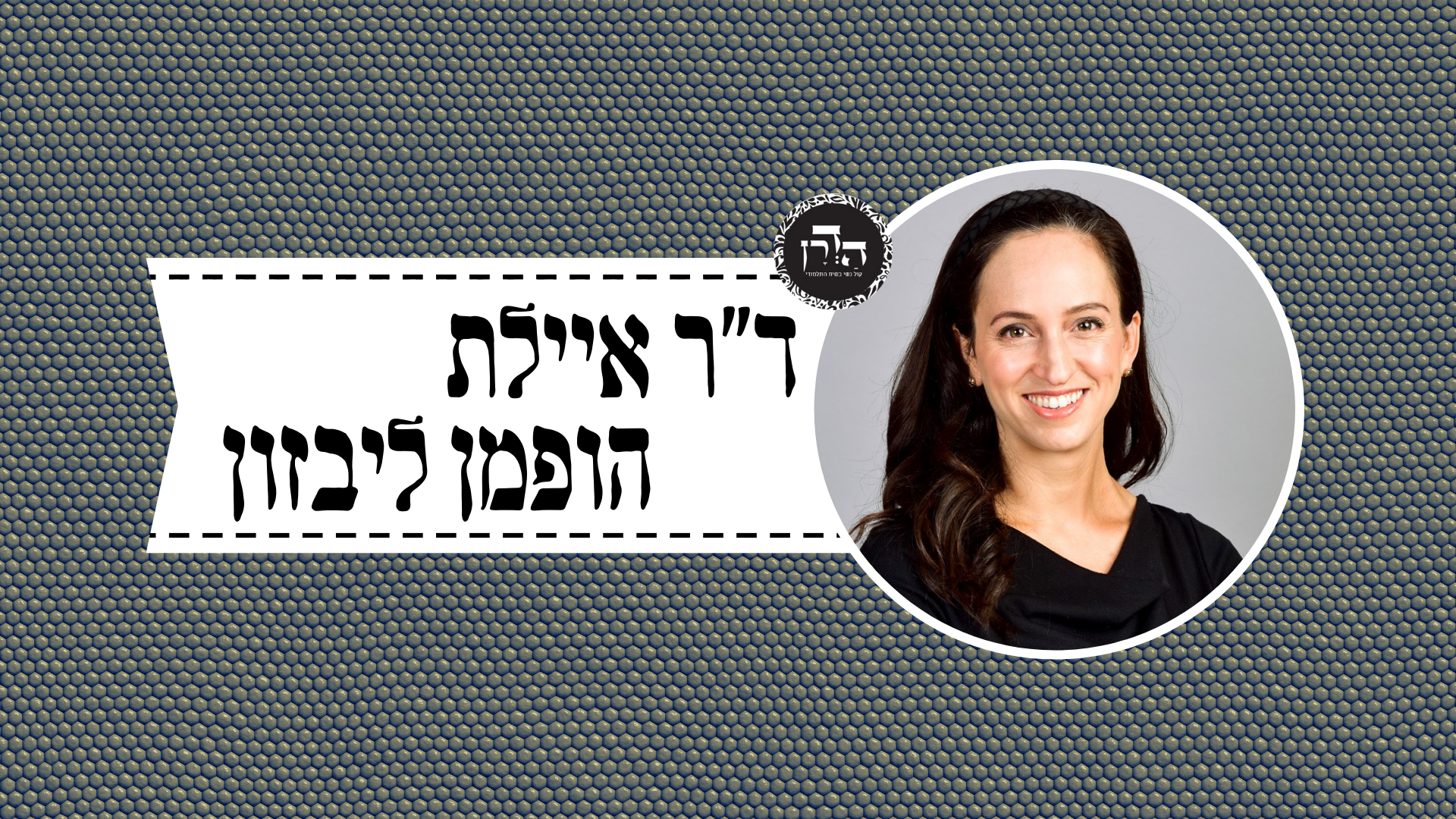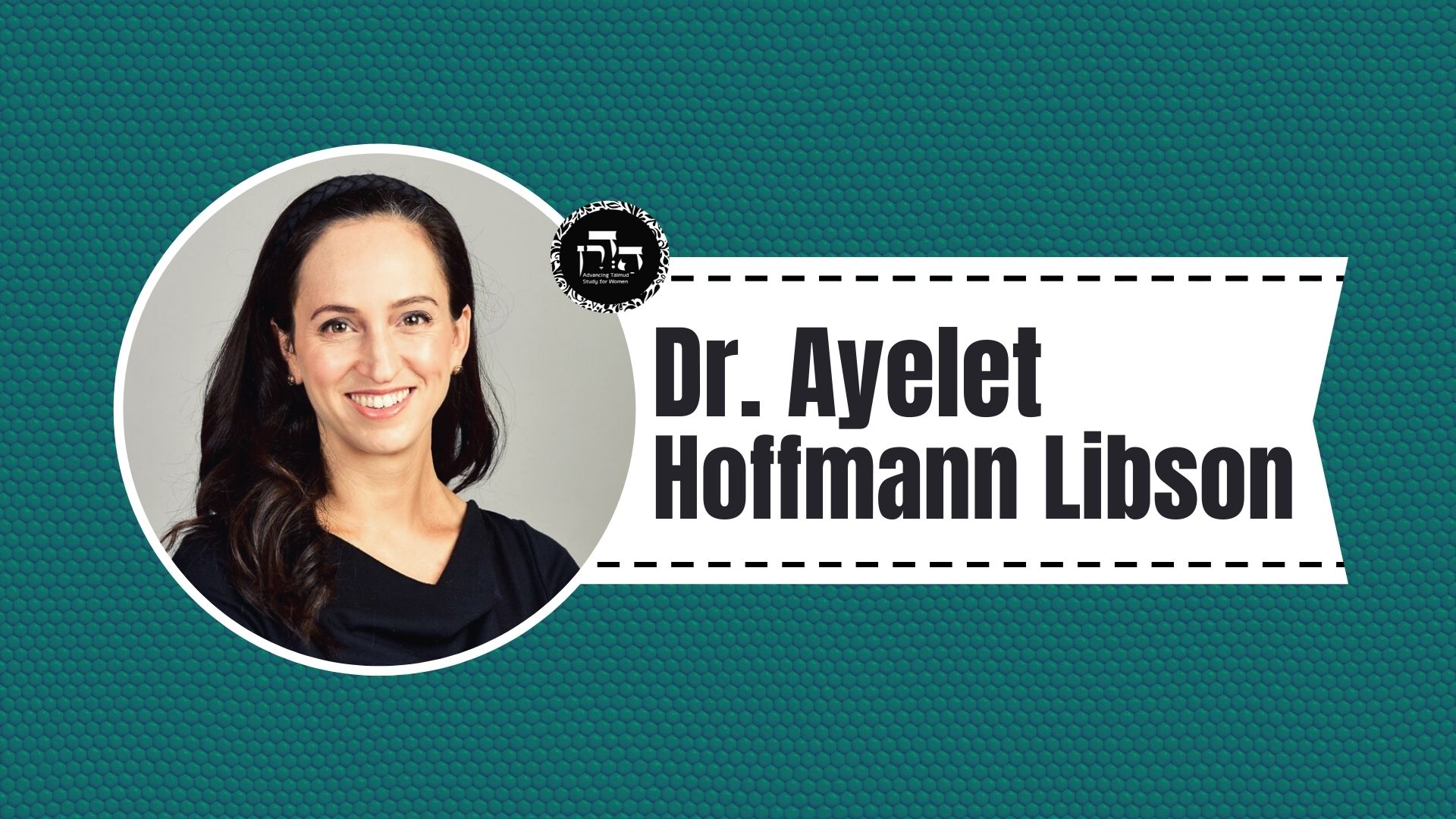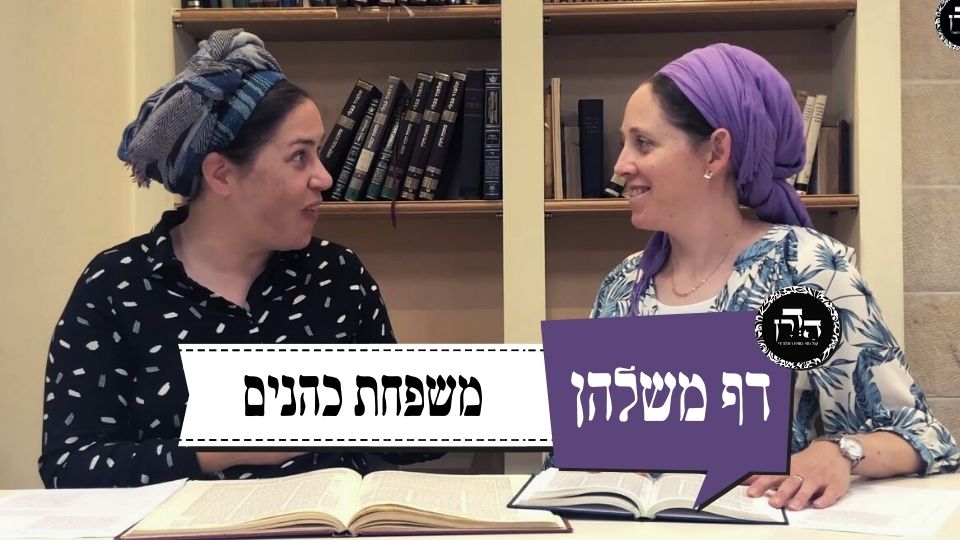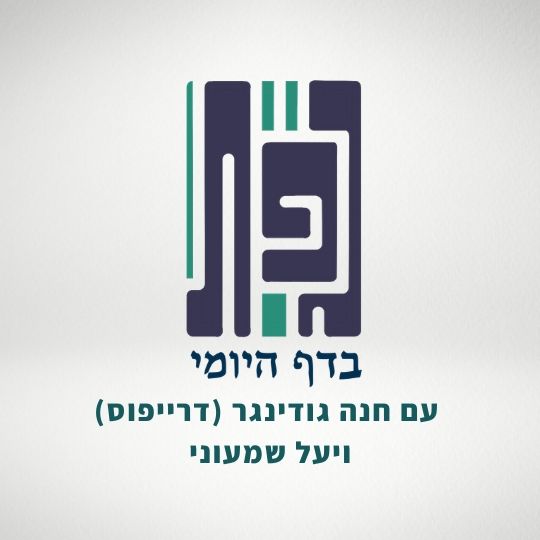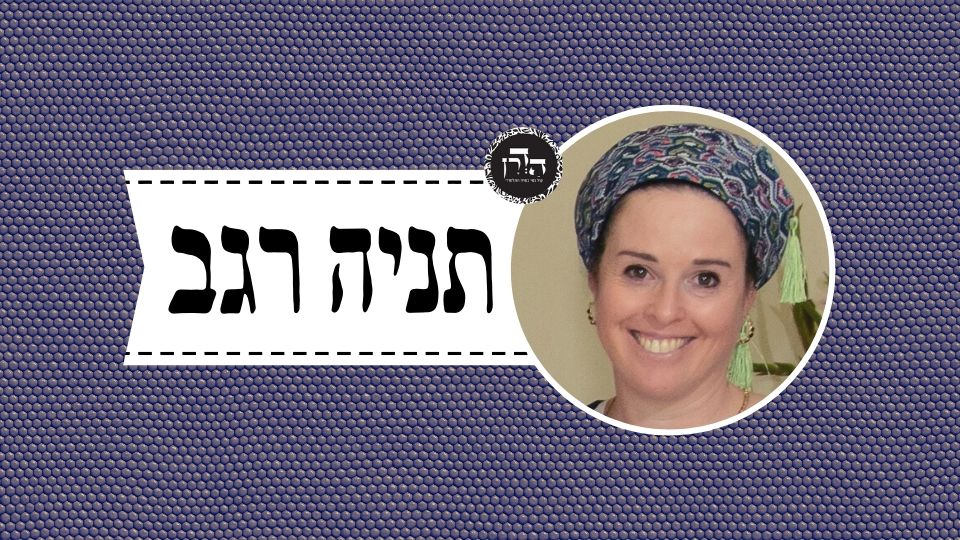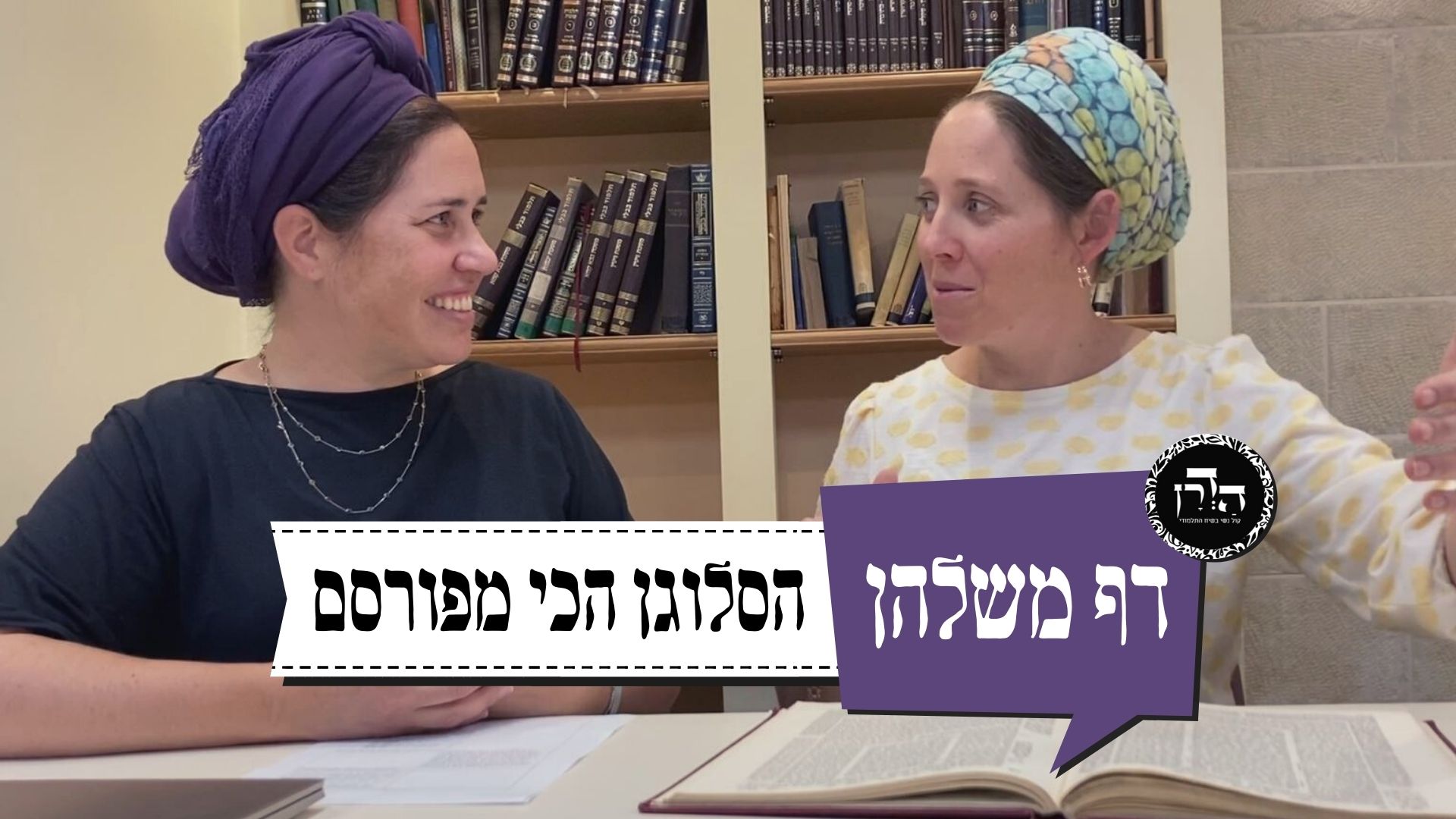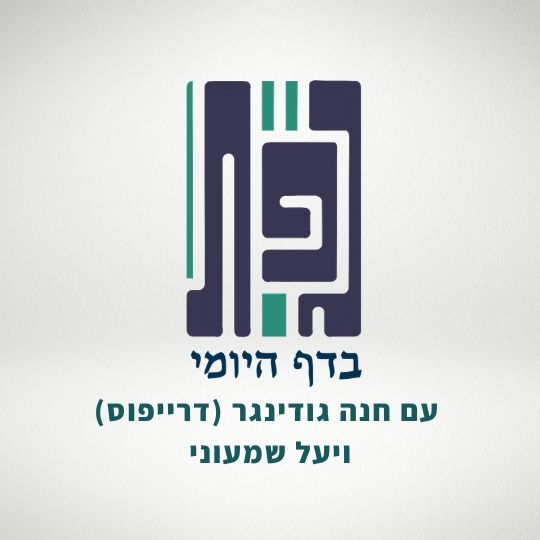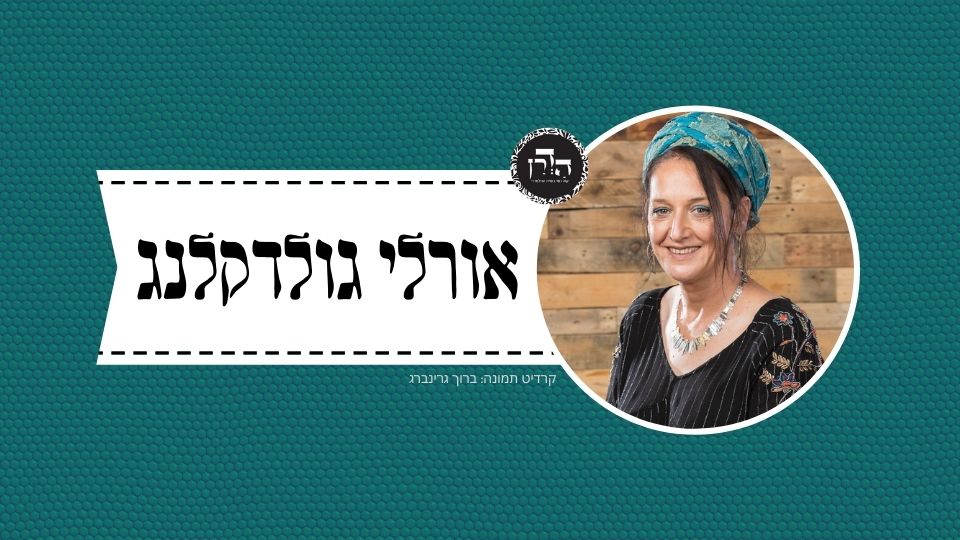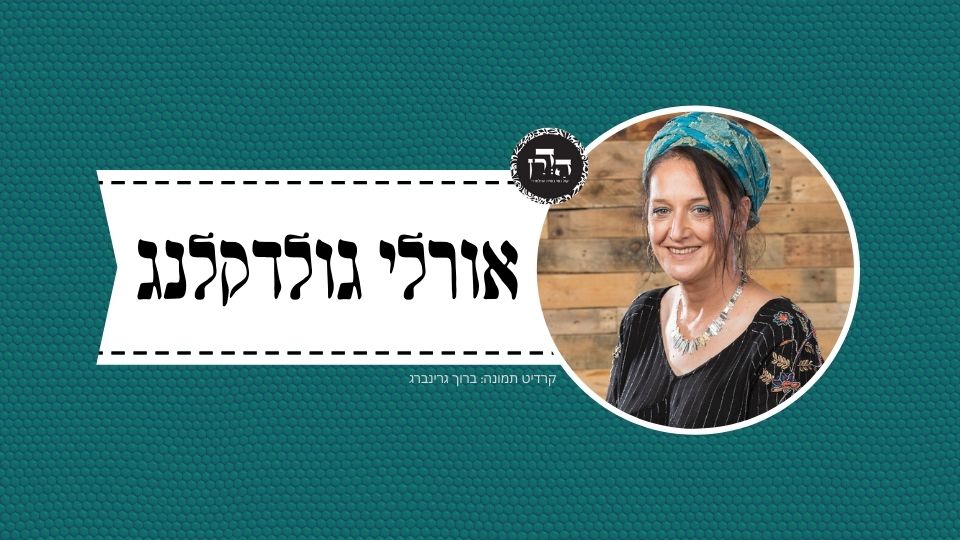יומא ה
אָמַר רַב יוֹסֵף: סְמִיכָה אִיכָּא בֵּינַיְיהוּ. לְמַאן דְּאָמַר כׇּל הַכָּתוּב בָּהֶן מְעַכֵּב בָּהֶן — סְמִיכָה מְעַכְּבָא, לְמַאן דְּאָמַר דָּבָר שֶׁאֵין מְעַכֵּב לְדוֹרוֹת אֵין מְעַכֵּב בָּהֶן — סְמִיכָה לָא מְעַכְּבָא.
Rav Yosef said: The practical difference between them relates to the question of placing hands on the head of an animal brought as an offering. According to the one who said: Failure to perform all the details that are written in its regard, including details that do not invalidate offerings throughout the generations, invalidates the inauguration, failure to perform the placing of hands on the head of the animal also invalidates the inauguration. According to the one who said: A matter that does not invalidate offerings throughout the generations does not invalidate the inauguration, failure to perform the placing of hands on the head of the animal does not invalidate the inauguration.
וּלְדוֹרוֹת מְנָא לַן דְּלָא מְעַכְּבָא? דְּתַנְיָא: ״וְסָמַךְ״ ״וְנִרְצָה״. וְכִי סְמִיכָה מְכַפֶּרֶת? וַהֲלֹא אֵין כַּפָּרָה אֶלָּא בְּדָם, שֶׁנֶּאֱמַר: ״כִּי הַדָּם הוּא בַּנֶּפֶשׁ יְכַפֵּר״!
And with regard to the halakhot of offerings that apply throughout the generations the Gemara asks: From where do we derive that failure to place hands on the head of the animal does not invalidate the offering? The Gemara answers: As it was taught in a baraita that the verse states: “And he shall place his hand on the head of the burnt-offering, and it shall be accepted for him to atone on his behalf” (Leviticus 1:4). Does the placing of hands atone for one’s sins? Isn’t atonement accomplished only by the sprinkling of the blood, as it is stated: “For it is the blood that makes atonement by reason of the life” (Leviticus 17:11)?
וּמָה תַּלְמוּד לוֹמַר ״וְסָמַךְ״ ״וְנִרְצָה״? שֶׁאִם עֲשָׂאָהּ לִסְמִיכָה שְׁיָרֵי מִצְוָה — מַעֲלֶה עָלָיו הַכָּתוּב כְּאִילּוּ לֹא כִּפֵּר, וְכִפֵּר!
And for what purpose, then, does the verse state: “And he shall place…and it shall be accepted”? It teaches that if one deemed the ritual of placing hands to be a peripheral aspect of the mitzva and consequently failed to perform it, the verse ascribes to him status as though he did not achieve optimal atonement; and nevertheless, the offering atones for his sins. Apparently, failure to lay hands on the head of the offering does not invalidate the offering throughout the generations, as atonement can be achieved without it. Nevertheless, according to the opinion of Rabbi Yoḥanan, failure to lay hands on the offering invalidates the offerings brought during the inauguration.
רַב נַחְמָן בַּר יִצְחָק אָמַר: תְּנוּפָה אִיכָּא בֵּינַיְיהוּ. לְמַאן דְּאָמַר כׇּל הַכָּתוּב בָּהֶן מְעַכֵּב בָּהֶן — מְעַכְּבָא. וּלְמַאן דְּאָמַר דָּבָר שֶׁאֵין מְעַכֵּב לְדוֹרוֹת אֵין מְעַכֵּב בָּהֶן — לָא מְעַכְּבָא.
Rav Naḥman bar Yitzḥak said: The issue of waving the offering is the practical difference between the opinions of Rabbi Yoḥanan and Rabbi Ḥanina. According to the one who said: Failure to perform all the details that are written in its regard invalidates the inauguration, failure to wave the offering also invalidates the inauguration. And according to the one who said: A matter that does not invalidate offerings throughout the generations does not invalidate the inauguration, failure to wave the offering does not invalidate the inauguration.
וּלְדוֹרוֹת מְנָא לַן דְּלָא מְעַכְּבָא? דְּתַנְיָא: ״לִתְנוּפָה לְכַפֵּר״. וְכִי תְּנוּפָה מְכַפֶּרֶת? וַהֲלֹא אֵין כַּפָּרָה אֶלָּא בְּדָם, שֶׁנֶּאֱמַר: ״כִּי הַדָּם הוּא בַּנֶּפֶשׁ יְכַפֵּר״! וּמָה תַּלְמוּד לוֹמַר ״לִתְנוּפָה לְכַפֵּר״? שֶׁאִם עֲשָׂאָהּ לִתְנוּפָה שְׁיָרֵי מִצְוָה — מַעֲלֶה עָלָיו הַכָּתוּב כְּאִילּוּ לֹא כִּפֵּר, וְכִפֵּר.
And with regard to the halakhot of offerings throughout the generations, the Gemara asks: From where do we derive that failure to wave the offering does not invalidate the offering? The Gemara answers: As it was taught in a baraita that the verse says: “He shall take one male lamb as a guilt-offering to be waved to make atonement for him” (Leviticus 14:21). Does waving the offering atone for one’s sins? Isn’t atonement accomplished only by the sprinkling of the blood, as it is stated: “For it is the blood that makes atonement by reason of the life” (Leviticus 17:11)? And for what purpose, then, does the verse state: To be waved to make atonement? It teaches that if one deemed the ritual of waving to be a peripheral aspect of the mitzva and therefore failed to perform it, the verse ascribes to him status as though he did not achieve optimal atonement; and nevertheless, the offering atones for his sins on his behalf.
רַב פָּפָּא אָמַר: פְּרִישַׁת שִׁבְעָה אִיכָּא בֵּינַיְיהוּ. לְמַאן דְּאָמַר כׇּל הַכָּתוּב בָּהֶן מְעַכֵּב בָּהֶן — מְעַכְּבָא. לְמַאן דְּאָמַר דָּבָר שֶׁאֵינוֹ מְעַכֵּב לְדוֹרוֹת אֵינוֹ מְעַכֵּב בָּהֶן — לָא מְעַכְּבָא.
Rav Pappa said: The issue of sequestering the priest for seven days is the practical difference between the opinions of Rabbi Yoḥanan and Rabbi Ḥanina. According to the one who said: Failure to perform all the details that are written in its regard invalidates the inauguration, failure to sequester the priest for seven days also invalidates the inauguration. And according to the one who said: A matter that does not invalidate offerings throughout the generations does not invalidate the inauguration, failure to sequester the priest for seven days does not invalidate the inauguration.
וּלְדוֹרוֹת מְנָא לַן דְּלָא מְעַכְּבָא? מִדְּקָא תָנֵי ״מַתְקִינִין״, וְלָא קָתָנֵי ״מַפְרִישִׁין״.
And with regard to the halakhot of offerings throughout the generations, the Gemara asks: From where do we derive that failure to sequester the priest for seven days does not invalidate the offering? The Gemara answers: It is derived from the fact that it is taught in the mishna: And they would designate another priest in his stead, and it is not taught: The Sages remove the designated priest from his house, despite the possibility that ultimately he might replace the High Priest and perform the Yom Kippur service. Apparently, sequestering is not essential.
רָבִינָא אָמַר: רִיבּוּי שִׁבְעָה וּמְשִׁיחָה שִׁבְעָה, אִיכָּא בֵּינַיְיהוּ. לְמַאן דְּאָמַר כׇּל הַכָּתוּב בָּהֶן מְעַכֵּב בָּהֶן — מְעַכְּבָא. לְמַאן דְּאָמַר דָּבָר שֶׁאֵין מְעַכֵּב לְדוֹרוֹת אֵין מְעַכֵּב בָּהֶן — לָא מְעַכְּבָא.
Ravina said: The issue of the priest performing the service with the multiple garments of the High Priest for seven days and serving with anointment for seven days is the practical difference between the opinions of Rabbi Yoḥanan and Rabbi Ḥanina. According to the one who said: Failure to perform all the details that are written in its regard invalidates the inauguration, failure to serve with multiple garments and anointment for seven days also invalidates the inauguration. And according to the one who said: A matter that does not invalidate offerings throughout the generations does not invalidate the inauguration, failure to serve with multiple garments and anointment for seven days does not invalidate the inauguration.
וּלְדוֹרוֹת מְנָא לַן דְּלָא מְעַכְּבָא? דְּתַנְיָא: ״וְכִפֵּר הַכֹּהֵן אֲשֶׁר יִמְשַׁח אוֹתוֹ וַאֲשֶׁר יְמַלֵּא אֶת יָדוֹ לְכַהֵן תַּחַת אָבִיו״, מָה תַּלְמוּד לוֹמַר?
And with regard to the halakhot of offerings throughout the generations, the Gemara asks: From where do we derive that failure to serve with multiple garments and anointment for seven days does not invalidate the offering? The Gemara answers: As it was taught in a baraita: For what purpose does the verse state: “And the priest who shall be anointed and who shall be consecrated to serve in his father’s stead shall make the atonement” (Leviticus 16:32)? If it comes to teach that all service must be performed by the High Priest, it is already written with regard to the Yom Kippur service that it must be performed by Aaron, the High Priest.
לְפִי שֶׁנֶּאֱמַר: ״שִׁבְעַת יָמִים יִלְבָּשָׁם הַכֹּהֵן תַּחְתָּיו מִבָּנָיו״, אֵין לִי אֶלָּא נִתְרַבָּה שִׁבְעָה וְנִמְשַׁח שִׁבְעָה. נִתְרַבָּה שִׁבְעָה וְנִמְשַׁח יוֹם אֶחָד, נִתְרַבָּה יוֹם אֶחָד וְנִמְשַׁח שִׁבְעָה מִנַּיִין? תַּלְמוּד לוֹמַר: ״אֲשֶׁר יִמְשַׁח אוֹתוֹ וַאֲשֶׁר יְמַלֵּא אֶת יָדוֹ״ — מִכׇּל מָקוֹם.
Since it is stated: “Seven days shall the son that is priest in his stead don them” (Exodus 29:30), I derive only that one who donned the multiple garments of the High Priest for seven days and was anointed seven days assumes the position of High Priest and may perform the service on Yom Kippur. However, with regard to whether one who donned the multiple garments for seven days and was anointed for one day, or one who donned the multiple garments for one day and was anointed for seven days is thereby inaugurated as High Priest, from where are those cases derived? Therefore, the verse states: “Who shall be anointed and who shall be consecrated”; in any case he is appointed High Priest, even if either anointment or donning the garments did not continue for seven days.
אַשְׁכְּחַן רִיבּוּי שִׁבְעָה לְכַתְּחִלָּה, מְשִׁיחָה שִׁבְעָה לְכַתְּחִלָּה מְנָא לַן?
The Gemara asks: We found a source for the fact that when the High Priest is appointed, there is a requirement of donning multiple garments for seven days ab initio; however, from where do we derive the requirement of anointment for seven days ab initio? According to Ravina, there is a requirement to anoint the priest on each of the seven days ab initio, even though failure to do so does not invalidate the offering throughout the generations. From where is that requirement derived?
אִיבָּעֵית אֵימָא מִדְּאִיצְטְרִיךְ קְרָא לְמַעוֹטַהּ. וְאִיבָּעֵית אֵימָא דְּאָמַר קְרָא: ״וּבִגְדֵי הַקֹּדֶשׁ אֲשֶׁר לְאַהֲרֹן יִהְיוּ לְבָנָיו אַחֲרָיו לְמׇשְׁחָה בָהֶם וּלְמַלֵּא בָם אֶת יָדָם״, אִיתַּקַּשׁ מְשִׁיחָה לְרִיבּוּי: מָה רִיבּוּי שִׁבְעָה, אַף מְשִׁיחָה שִׁבְעָה.
If you wish, say: It is derived from the fact that the verse: “And the priest who shall be anointed and who shall be consecrated to serve in his father’s stead shall make the atonement,” is necessary to exclude requirements derived from other sources, i.e., that both donning multiple garments and anointment must be for seven days. Apparently, anointment for seven days is required ab initio. And if you wish, say instead that it is derived from that which the verse states: “And the sacred garments of Aaron shall be for his sons after him, to be anointed in them and to be consecrated in them” (Exodus 29:29). Anointment is juxtaposed in this verse to donning multiple garments: Just as donning multiple garments is required for seven days ab initio, so too, anointment is required for seven days ab initio.
מַאי טַעְמָא דְּמַאן דְּאָמַר כׇּל הַכָּתוּב בָּהֶן מְעַכֵּב? אָמַר רַבִּי יִצְחָק בַּר בִּיסְנָא, אָמַר קְרָא: ״וְעָשִׂיתָ לְאַהֲרֹן וּלְבָנָיו כָּכָה״. ״כָּכָה״ עִיכּוּבָא הוּא. תִּינַח כֹּל
§ After ascertaining the halakhic distinctions between the opinions of Rabbi Yoḥanan and Rabbi Ḥanina with regard to the inauguration, the Gemara proceeds to analyze the rationales for those opinions. What is the reason for the opinion of the one who said: Failure to perform all the details that are written in its regard invalidates the inauguration? Rabbi Yitzḥak bar Bisna said that the verse states: “And so shall you do to Aaron and to his sons according to all that I have commanded you, seven days shall you consecrate them” (Exodus 29:35). The term: So, teaches that failure to perform the ritual precisely in this manner invalidates the inauguration. The Gemara asks: That works out well as a source that all
מִילְּתָא דִּכְתִיבָא בְּהַאי עִנְיָנָא. מִילְּתָא דְּלָא כְּתִיבָא בְּהַאי עִנְיָנָא מְנָא לַן?
matters that are written in the context of this topic of inauguration in the book of Exodus invalidate the inauguration. However, with regard to matters that are not written in that context, but are written in the portion of the inauguration in Leviticus, from where do we derive that they invalidate the inauguration?
אָמַר רַב נַחְמָן בַּר יִצְחָק: יָלֵיף ״פֶּתַח״ ״פֶּתַח״. רַב מְשַׁרְשְׁיָא אָמַר: ״וּשְׁמַרְתֶּם אֶת מִשְׁמֶרֶת ה׳״ — עִכּוּבָא. רַב אָשֵׁי אָמַר: ״כִּי כֵן צֻוֵּיתִי״ — עִכּוּבָא.
Rav Naḥman bar Yitzḥak said: One derives a verbal analogy between the word opening that appears in the two portions of the inauguration. It is written in the command concerning the inauguration: “The opening of the Tent of Meeting” (Exodus 29:32), and in its fulfillment it is written: “The opening of the Tent of Meeting” (Leviticus 8:31). Failure to perform the matters written in both portions invalidates the inauguration.
Rav Mesharshiyya said: The verbal analogy is unnecessary, as the conclusion can be derived directly from the verse written with regard to the implementation of the inauguration: “And keep the charge of the Lord, that you not die, for so I am commanded” (Leviticus 8:35). The emphasis on this being the charge of the Lord comes to teach that failure to perform all the details mentioned in the implementation of the command invalidates the inauguration.
Rav Ashi says: The phrase: For so I am commanded, is the source from which it is derived that all the details written in both portions invalidate the inauguration.
תָּנוּ רַבָּנַן: ״כִּי כֵן צֻוֵּיתִי״, ״כַּאֲשֶׁר צִוֵּיתִי״, ״כַּאֲשֶׁר צִוָּה ה׳״. ״כִּי כֵן צֻוֵּיתִי״ — בַּאֲנִינוּת יֹאכְלוּהָ. ״כַּאֲשֶׁר צִוֵּיתִי״ — בִּשְׁעַת מַעֲשֶׂה אָמַר לָהֶם. ״כַּאֲשֶׁר צִוָּה ה׳״ — וְלֹא מֵאֵלַי אֲנִי אוֹמֵר.
Apropos that phrase, the Gemara cites a related halakhic midrash. The Sages taught: In the context of the implementation of the inauguration, three variations of the phrase appear: “For so I am commanded” (Leviticus 8:35); “as I commanded” (Leviticus 10:18); and “as God has commanded” (Leviticus 10:15). What does this repetition teach? From the phrase: “For so I am commanded,” it is derived that even in a state of acute mourning, on the first day after the death of a relative, one must eat the offering. God stated the verse: “As I commanded,” at the time of the incident just after the deaths of Nadav and Avihu, when Aaron and his sons were in a state of acute mourning. And when Moses states: “As God commanded,” he is saying: The command is from God and it is not from my own initiative that I am saying it.
אָמַר רַבִּי יוֹסֵי בַּר חֲנִינָא: מִכְנָסַיִם אֵין כְּתוּבִין בַּפָּרָשָׁה, כְּשֶׁהוּא אוֹמֵר ״וְזֶה הַדָּבָר אֲשֶׁר תַּעֲשֶׂה לָהֶם לְקַדֵּשׁ אֹתָם לְכַהֵן״ — לְהָבִיא הַמִּכְנָסַיִם וַעֲשִׂירִית הָאֵיפָה.
Apropos the matters mentioned that are not explicit in the portion, the Gemara cites that which Rabbi Yosei bar Ḥanina said: Trousers are one of the priestly vestments worn during the inauguration, but they are not written in the Torah portion. When the verse says: “And this is the matter that you shall do for them to sanctify them for My service” (Exodus 29:1), the superfluous word: And, which appears at the beginning of the verse, comes to add to that which was written previously and to include trousers and the tenth of an ephah offered by a priest on the day that he begins his service.
בִּשְׁלָמָא מִכְנָסַיִם כְּתִיבִי בְּעִנְיָנָא דִבְגָדִים, אֶלָּא עֲשִׂירִית הָאֵיפָה מְנָא לַן? אָתְיָא ״זֶה״ ״זֶה״ מִ״וְּזֶה קׇרְבַּן אַהֲרֹן וּבָנָיו אֲשֶׁר יַקְרִיבוּ לַה׳ עֲשִׂירִית הָאֵיפָה״.
The Gemara asks: Granted, trousers can be derived, as the verse is written in the context of the matter of priestly garments detailed adjacent to the portion of the inauguration. However, with regard to the tenth of an ephah, from where do we derive that there is an obligation to offer it during the inauguration? The Gemara answers: It is derived by means of a verbal analogy between the word this that appears in one verse and the word this that appears in another. It is written: “This is the offering of Aaron and of his sons, which they shall offer to the Lord in the day when he is anointed, a tenth of an ephah” (Leviticus 6:13). And in the verse cited above in the context of the inauguration it says: “And this is the matter that you shall do for them,” which teaches that there is an obligation to offer a tenth of an ephah during the inauguration.
אָמַר רַבִּי יוֹחָנָן מִשּׁוּם רַבִּי שִׁמְעוֹן בֶּן יוֹחַאי: מִנַּיִין שֶׁאַף מִקְרָא פָּרָשָׁה מְעַכֵּב, תַּלְמוּד לוֹמַר: ״וַיֹּאמֶר מֹשֶׁה אֶל הָעֵדָה זֶה הַדָּבָר אֲשֶׁר צִוָּה ה׳״ — אֲפִילּוּ דִּיבּוּר מְעַכֵּב.
Rabbi Yoḥanan said in the name of Rabbi Shimon ben Yoḥai: From where is it derived that even failure to read the Torah portion of the inauguration invalidates the inauguration? The verse states: “And Moses said to the assembly: This is the matter [davar] that God has commanded to be done” (Leviticus 8:5), teaching that even failure to perform the recitation [dibbur] of the Torah portion to the people invalidates the inauguration.
כֵּיצַד הִלְבִּישָׁן? כֵּיצַד הִלְבִּישָׁן?! מַאי דַהֲוָה הֲוָה! אֶלָּא: כֵּיצַד מַלְבִּישָׁן לֶעָתִיד לָבוֹא? לֶעָתִיד לָבוֹא נָמֵי, לִכְשֶׁיָּבוֹאוּ אַהֲרֹן וּבָנָיו וּמֹשֶׁה עִמָּהֶם!
§ Apropos the inauguration of the priests, the Gemara asks: How, i.e., in what order, did Moses dress Aaron and his sons in the priestly vestments? The Gemara wonders: In what order did he dress them? That is an irrelevant question, as what was, was. The order in which Moses dressed the priests has no practical ramifications. Rather, the question must be: How will Moses dress the priests in the future, following the resurrection of the dead, when the Temple service will be restored? The Gemara rejects this question as well: In the future, too, when Aaron and his sons will come and Moses will be with them, he will know the proper sequence, and there is no point to raising the question.
אֶלָּא: כֵּיצַד הִלְבִּישָׁן לְמִיסְבַּר קְרָאֵי. פְּלִיגִי בָּהּ בְּנֵי רַבִּי חִיָּיא וְרַבִּי יוֹחָנָן. חַד אָמַר: אַהֲרֹן וְאַחַר כָּךְ בָּנָיו, וְחַד אָמַר: אַהֲרֹן וּבָנָיו בְּבַת אַחַת.
Rather, the question is: How did Moses dress them? The Gemara seeks to explain the verses on this topic, as they appear somewhat contradictory. The Gemara responds: The sons of Rabbi Ḥiyya and Rabbi Yoḥanan disagree with regard to this matter. One said: Moses dressed Aaron first and afterward Moses dressed his sons; and one said: Moses dressed Aaron and his sons simultaneously, i.e., consecutively from one to the next, without interruption, to avoid changing the order prescribed in the verses.
אָמַר אַבָּיֵי: בְּכֻתּוֹנֶת וּמִצְנֶפֶת כּוּלֵּי עָלְמָא לָא פְּלִיגִי דְּאַהֲרֹן וְאַחַר כָּךְ בָּנָיו. דְּבֵין בְּצַוּוֹאָה וּבֵין בַּעֲשִׂיָּה אַהֲרֹן קָדֵים. כִּי פְּלִיגִי בְּאַבְנֵט. מַאן דְּאָמַר אַהֲרֹן וְאַחַר כָּךְ בָּנָיו, דִּכְתִיב: ״וַיַּחְגּוֹר אוֹתוֹ בָּאַבְנֵט״, וַהֲדַר כְּתִיב: ״וַיַּחְגּוֹר אוֹתָם אַבְנֵט״. וּמַאן דְּאָמַר אַהֲרֹן וּבָנָיו בְּבַת אַחַת, דִּכְתִיב: ״וְחָגַרְתָּ אוֹתָם״. וּלְמַאן דְּאָמַר אַהֲרֹן וּבָנָיו בְּבַת אַחַת, הָכְתִיב: ״וַיַּחְגּוֹר אוֹתוֹ בְּאַבְנֵט״ וַהֲדַר כְּתִיב: ״וַיַּחְגּוֹר אוֹתָם אַבְנֵט״!
Abaye said: With regard to the tunic and mitre everyone agrees that Moses dressed Aaron and afterward his sons, as both in the portion of the command concerning the inauguration and in the portion of the implementation, mention of Aaron precedes mention of his sons. When they disagree, it is with regard to the belt. The Gemara elaborates. The one who said: Moses dressed Aaron and afterward his sons derives it from that which is written: “And he girded him with the belt” (Leviticus 8:7), and then it is written: “And he girded them with belts” (Leviticus 8:13). Moses first dressed Aaron in all of the garments, including the belt, and then Moses dressed Aaron’s sons. And the one who said: Moses dressed Aaron and his sons, simultaneously derives it from that which is subsequently written: “And gird them with belts, Aaron and his sons” (Exodus 29:9), indicating that Moses girded them all with belts simultaneously. The Gemara asks: And according to the one who says: Moses dressed Aaron and his sons simultaneously, isn’t it written: He girded him with the belt, and then it is written: He girded them with belts, clearly indicating that he dressed Aaron and then his sons?



